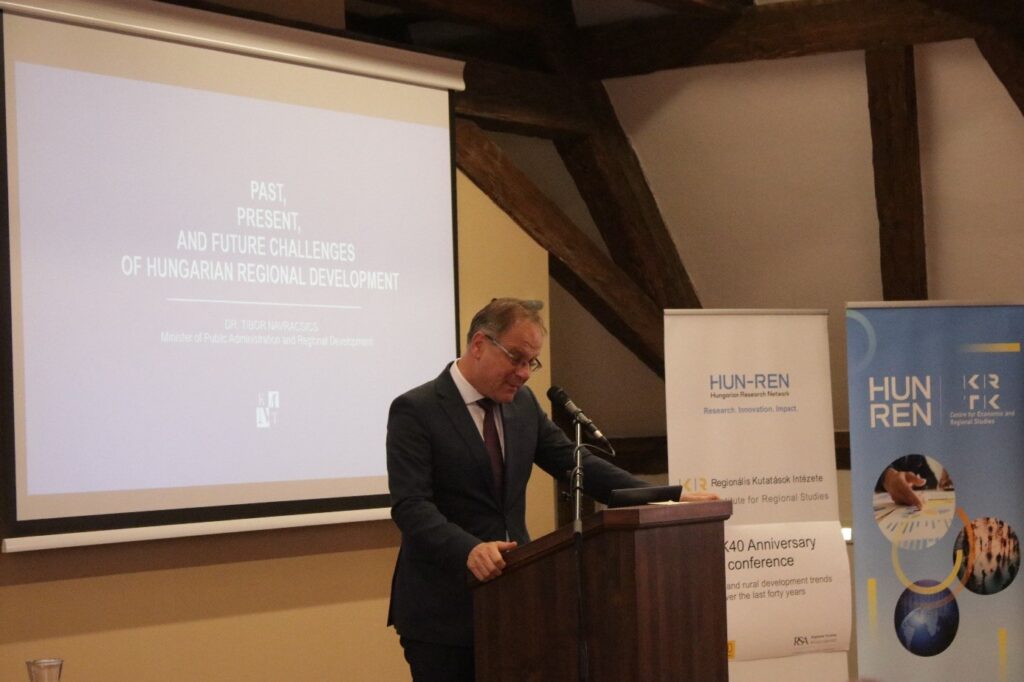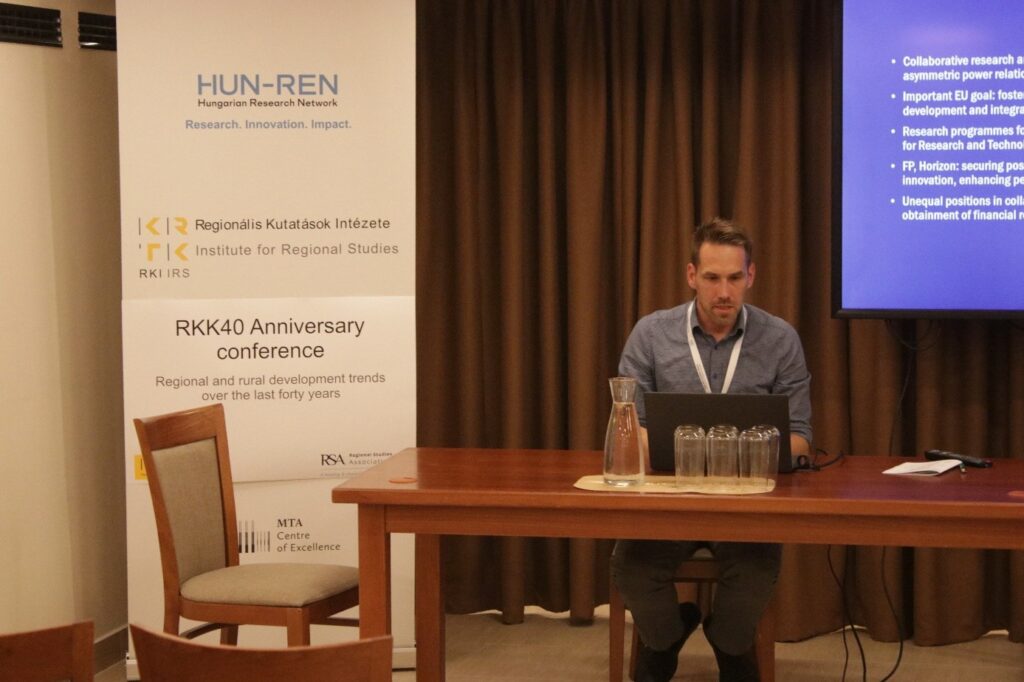By Zsuzsanna Zsibók (former RSA member) and Viktor Varjú (RSA section chair), Institute for Regional Studies, HUN-REN KRTK, Budapest, Hungary
The Institute for Regional Studies, HUN-REN KRTK organised its 40th-anniversary conference on the 29th and 30th of May. The two-day-long conference was held as planned. After the welcome speeches of the Minister for Regional Development (Figure 1), the CEO of the HUN-REN and the general director of KRTK, three plenary presentations were held by recognised scholars: Prof. Franziska Sielker (member of the RSA), prof. James W. Scott and Prof. József Benedek (fellow and ambassador of RSA). The final programme included 17 parallel sessions on 12 primary topics of the regional studies. During these sessions, altogether 66 presentations were held. Presenters came from CEE countries: Austria, Hungary, Poland, Romania, and Serbia. A roundtable was also organised, including some members of the RSA community (Gábor Lux, Zoltán Gál).
Figure 1: Presentation of the Minister

As seen on the conference webpage, the support of the RSA is indicated, and the RSA logo can also be found on the programme. As promotional material – due to our limited overall budget – we provided only a tiny notebook, including the RSA logo in it (Figure 2). Celebrating the anniversary of RKI, we also organise a Hungarian language conference (Village conference) on the 28th of May. This notebook was also distributed there, so the RSA logo achieved another 125 Hungarian researchers and policymakers dealing with rural development.
Figure 2. Notebook of the conference

We also put the RSA logo on the badges (see Figure 3).
Figure 3: Badge of the conference

We set up a roll-up in each of the session rooms, on which the RSA logo was also placed (see Figure 4).
Figure 4: Session presentations during the conference

After the conference, we also wrote a short report about the conference, including a citation for the RSA support. Abstracts are collected and published in an online book (including the RSA’s logo).
40 years in regional studies in Hungary
Right before the excellent annual conference of RSA in Florence, a small conference was organised by the leadership of the RSA Hungary section chair, Viktor Varjú, to celebrate the 40th anniversary of the foundation of the Institute for Regional Studies (RKK) (more details can be seen here: Varjú, 2024). The conference attracted PhD students and researchers from Hungary and some other Central and Eastern Central European countries, like Austria, Poland, Romania, Serbia and Slovakia.
Tibor Navracsics, Minister of Public Administration and Regional Development, was the conference guest and presented the past decades of Hungarian regional development, the current challenges and policy responses. Looking ahead to the future of Hungarian regional development policy, the minister highlighted three main pillars. Firstly, the place-based approach, the role of functional zones across administrative borders; secondly, the renewal of the funding system; and thirdly, the renewal of the institutional system to reach the people.
On the first day of the conference, sessions were followed by a roundtable discussion to conclude the day’s technical programme. The topic was the re-industrialisation of developed and peripheral regions of Hungary, which the participating experts discussed through the examples of Győr and Pécs (the seat city of one of the ten least developed regions of the EU).
The anniversary conference was both retrospective and forward-looking but with a greater emphasis on a strategic approach. The diverse mix of guests reflected the Institute’s openness to policy-makers at national and EU levels. As stated several times at the conference, many of the permanent challenges in regional studies have not yet been solved. Both guests and speakers in the parallel sessions emphasised the importance of cooperation on different levels and across levels to face and pass current poly-crises; thus, even beyond the next 40 years, a wide range of research directions will continue to emerge for the regional studies community.



